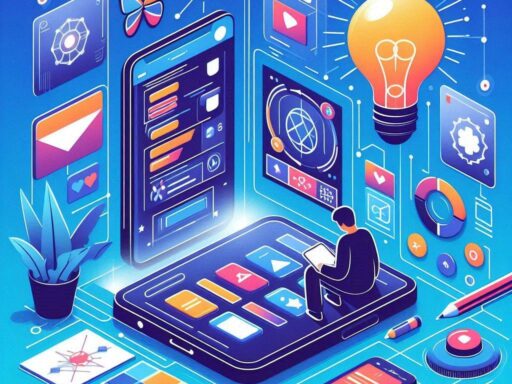Augmented Reality (AR) and Virtual Reality (VR) technologies have gained significant traction in the realm of Android app development, enabling developers to create immersive and engaging experiences for users. Here’s a brief overview of AR and VR in Android apps:
1.Augmented Reality (AR):
- With AR technology, users may see more of the real environment by superimposing digital content—like photos, videos, and 3D models—over it.
Google’s framework for creating augmented reality apps for Android smartphones is called ARCore. It gives developers the tools to make augmented reality programs that interact with the user’s surroundings by offering APIs for motion tracking, environmental comprehension, and light estimate. - ARCore, Vuforia, and Wikitude are some of the well-liked AR frameworks and libraries available for Android development.
- Applications for augmented reality (AR) include gaming, navigation, education, retail, and more.
2.Virtual Reality (VR):
- Through the use of a head-mounted display (HMD) or VR headset, users of VR technology are fully immersed in a virtual environment.
Google offers two VR platforms for Android devices: Google Cardboard and Google Daydream. While Daydream offers a more immersive VR experience with compatible smartphones and VR headsets, Cardboard delivers a straightforward and reasonably priced VR experience with a cardboard viewer. - Samsung Gear VR, HTC Vive, and Oculus—all owned by Meta Platforms, Inc.—are a few more well-liked VR apps for Android.
- Virtual reality (VR) uses include training simulations, virtual meetings, VR gaming, and more.
Integration into Android Apps:
- Both AR and VR can be integrated into Android apps using various SDKs, frameworks, and libraries provided by Google and third-party developers.
- Android Studio, the official integrated development environment (IDE) for Android app development, supports the integration of AR and VR technologies.
- Developers can use Unity 3D, Unreal Engine, or other game engines to create AR and VR experiences and then integrate them into Android apps.
- Android’s open ecosystem provides developers with the flexibility to leverage a wide range of hardware devices, sensors, and APIs to enhance AR and VR experiences on Android devices.
Conclusion:
Overall, AR and VR technologies offer exciting opportunities for Android app developers to create immersive, interactive, and innovative experiences for users across various domains. As these technologies continue to evolve, we can expect to see even more immersive and engaging AR and VR applications in the Android ecosystem.







